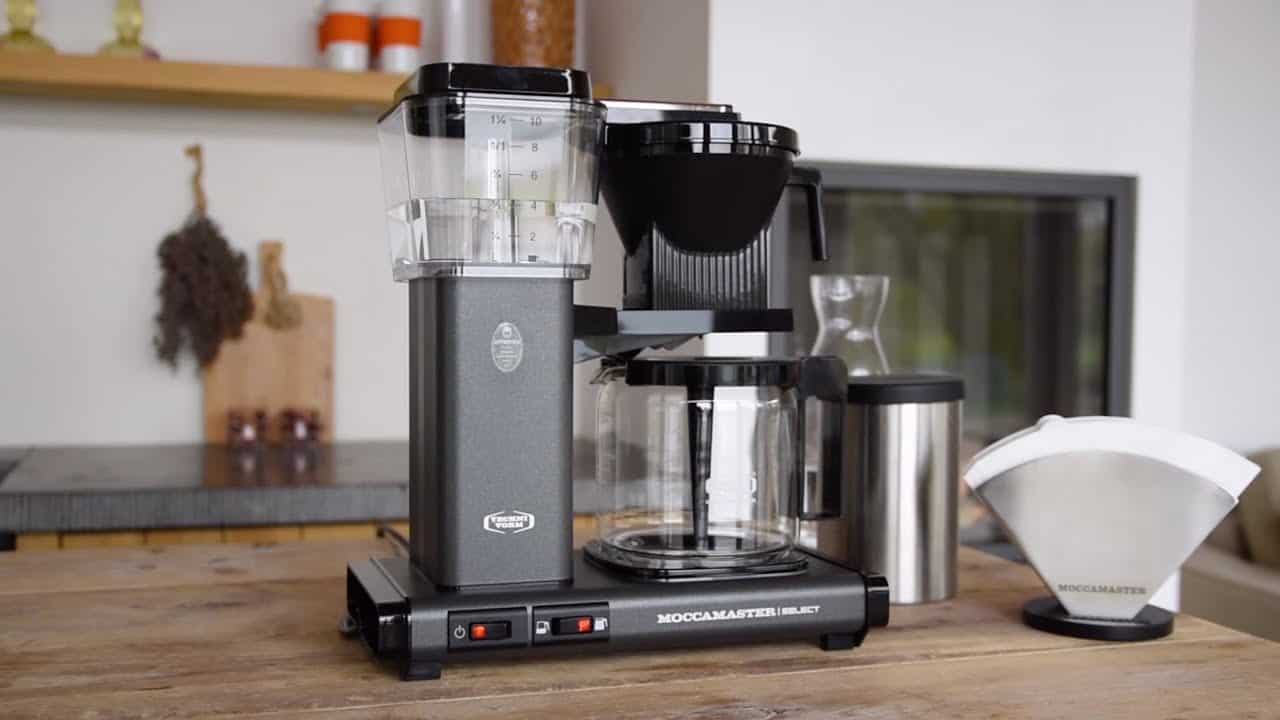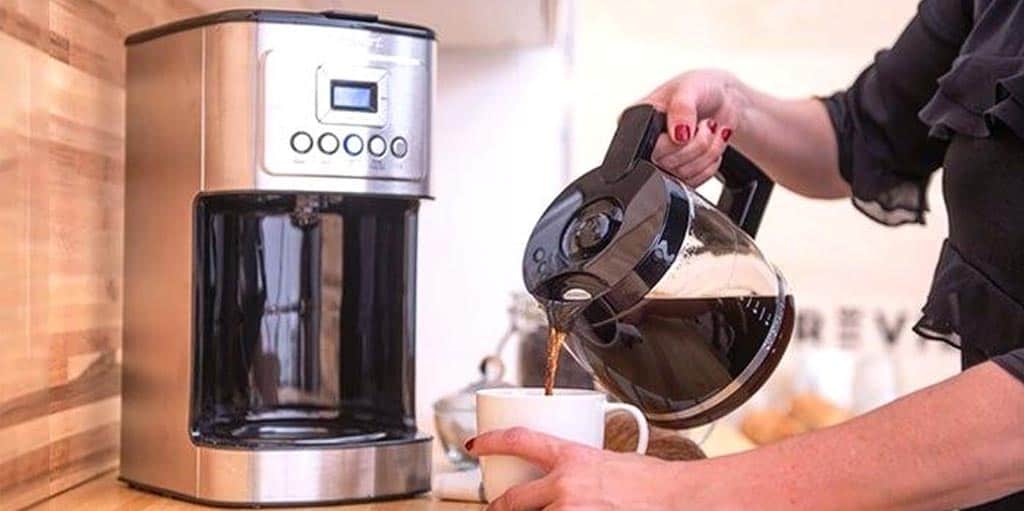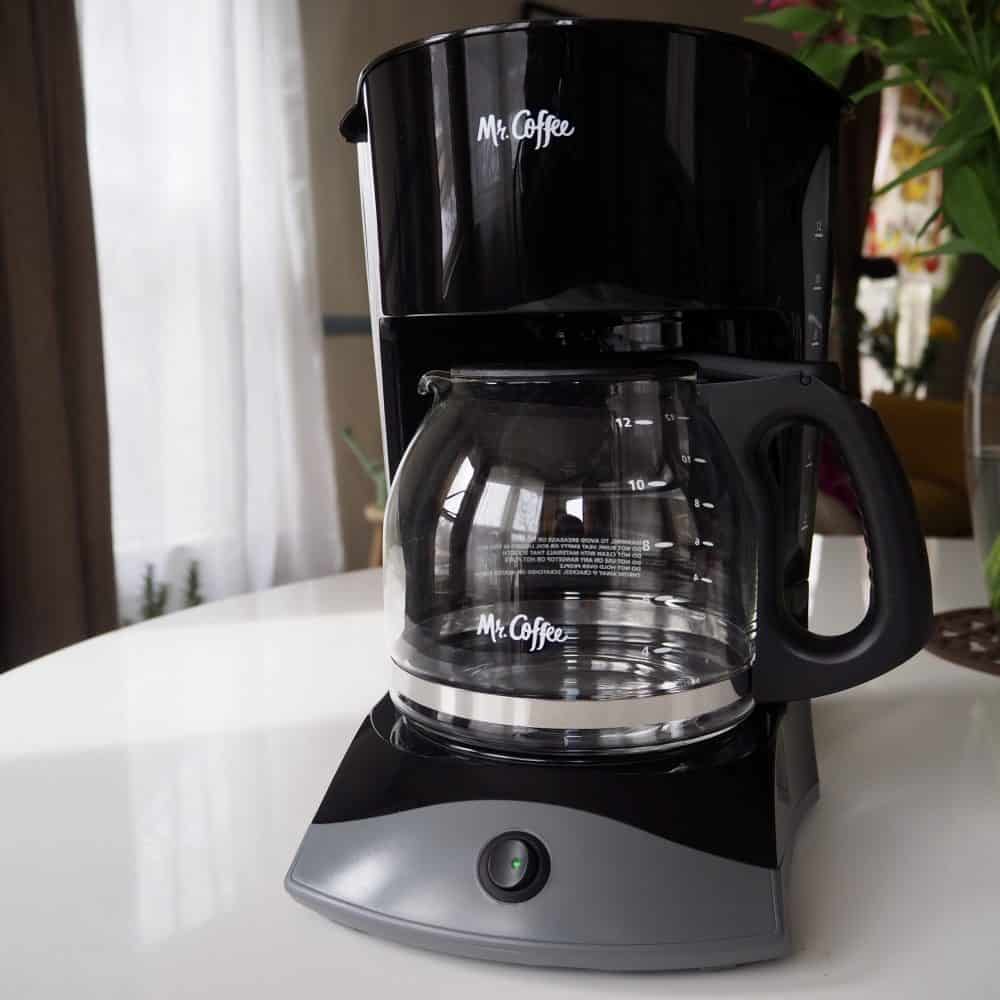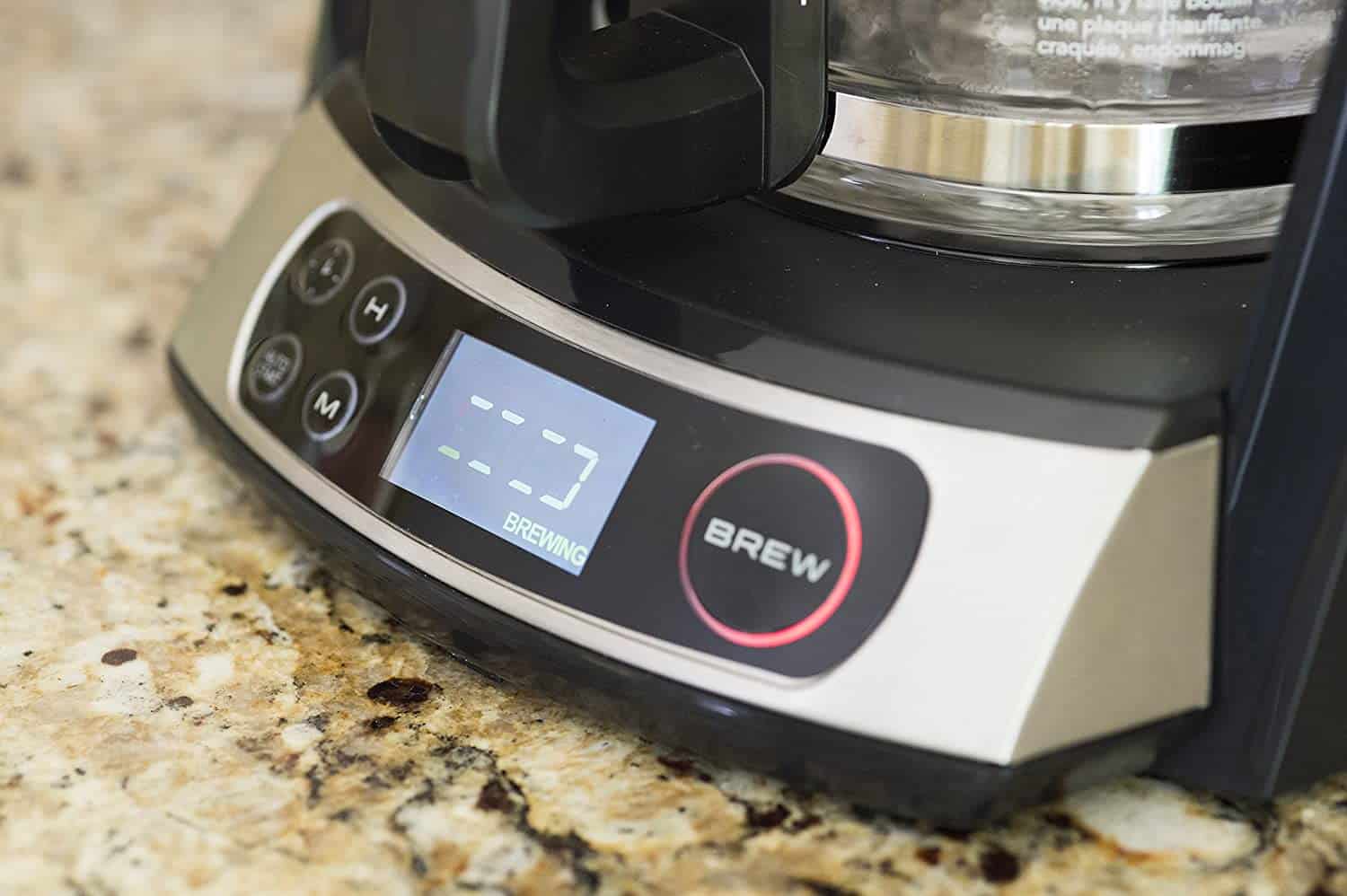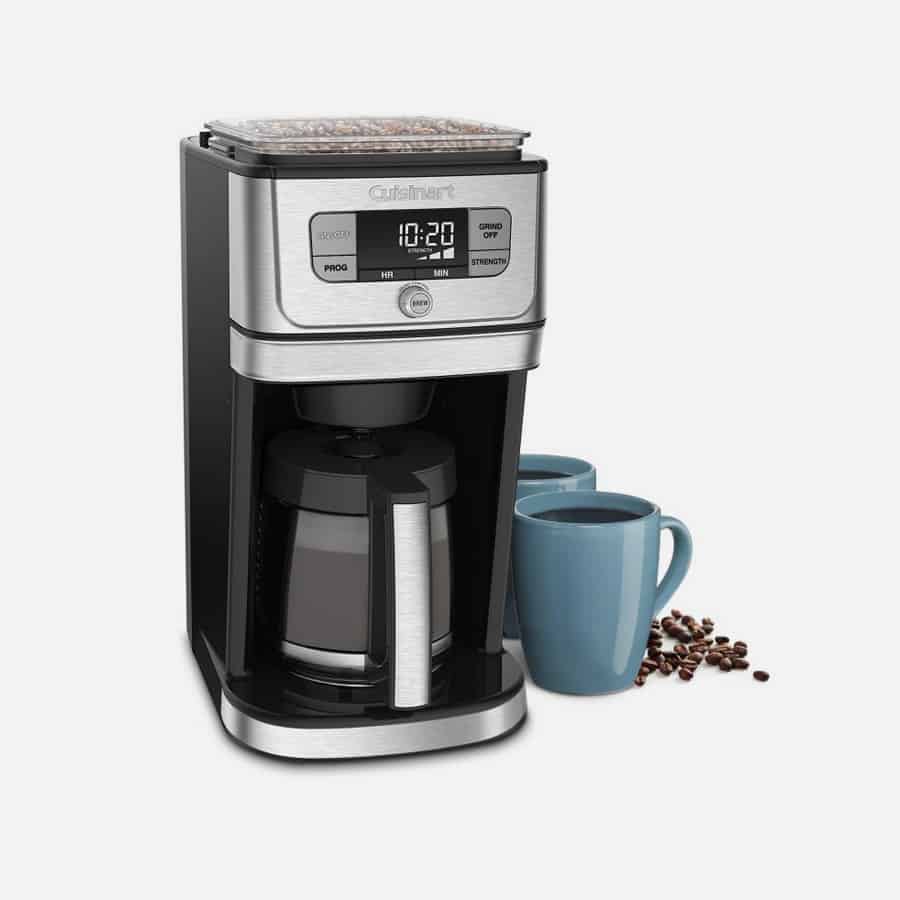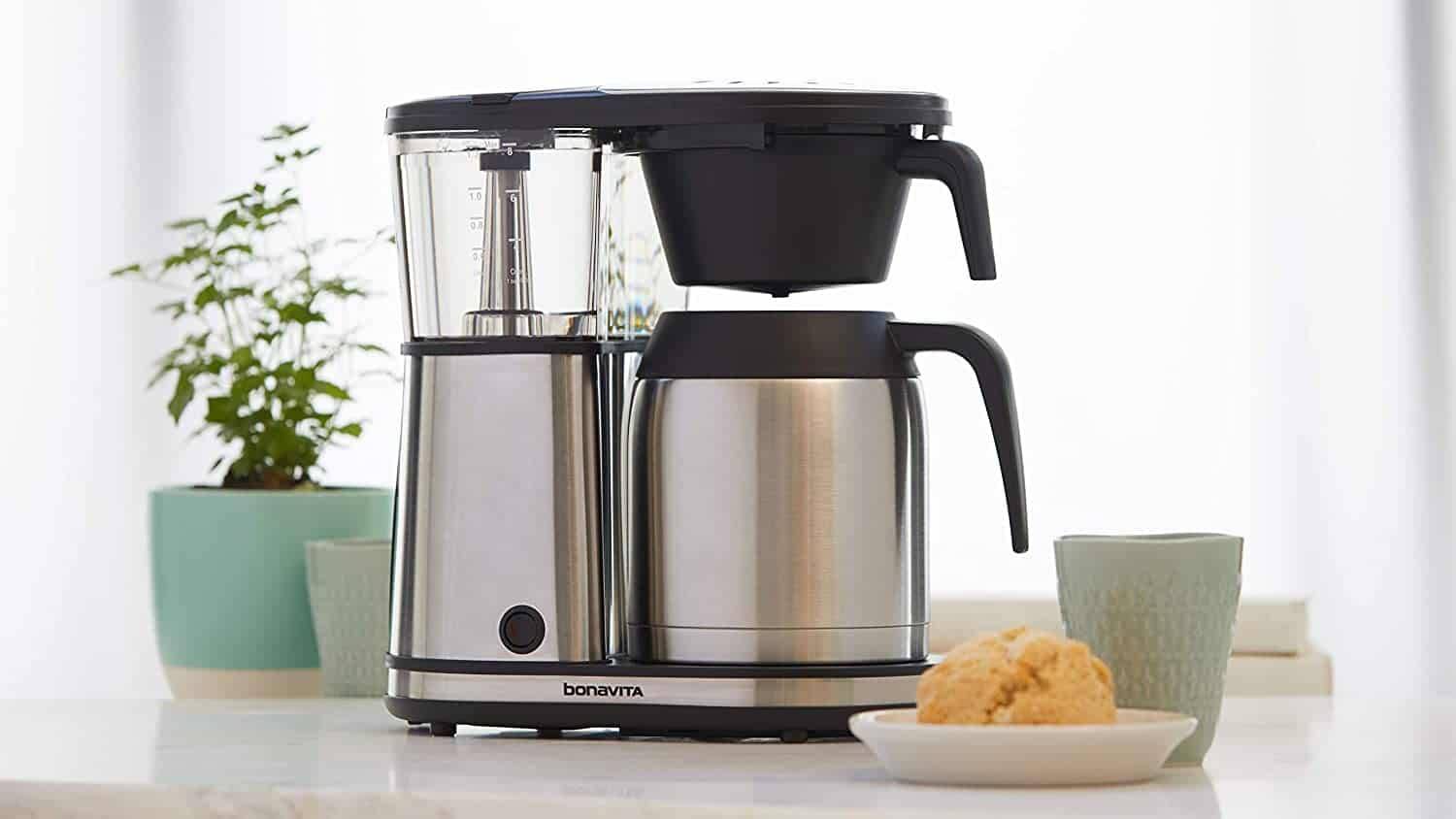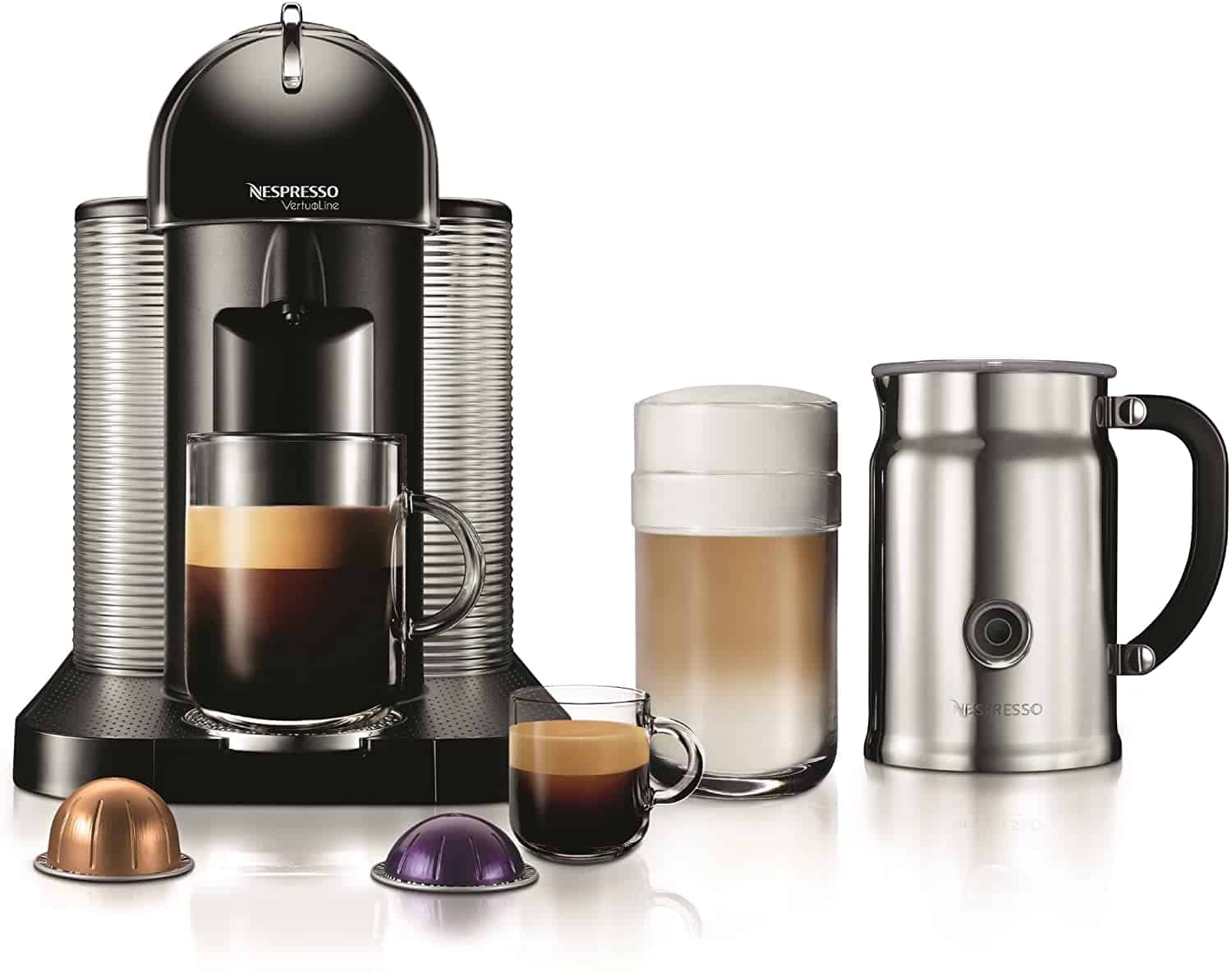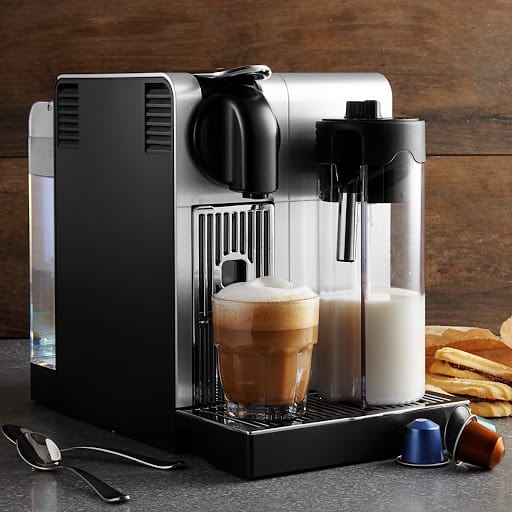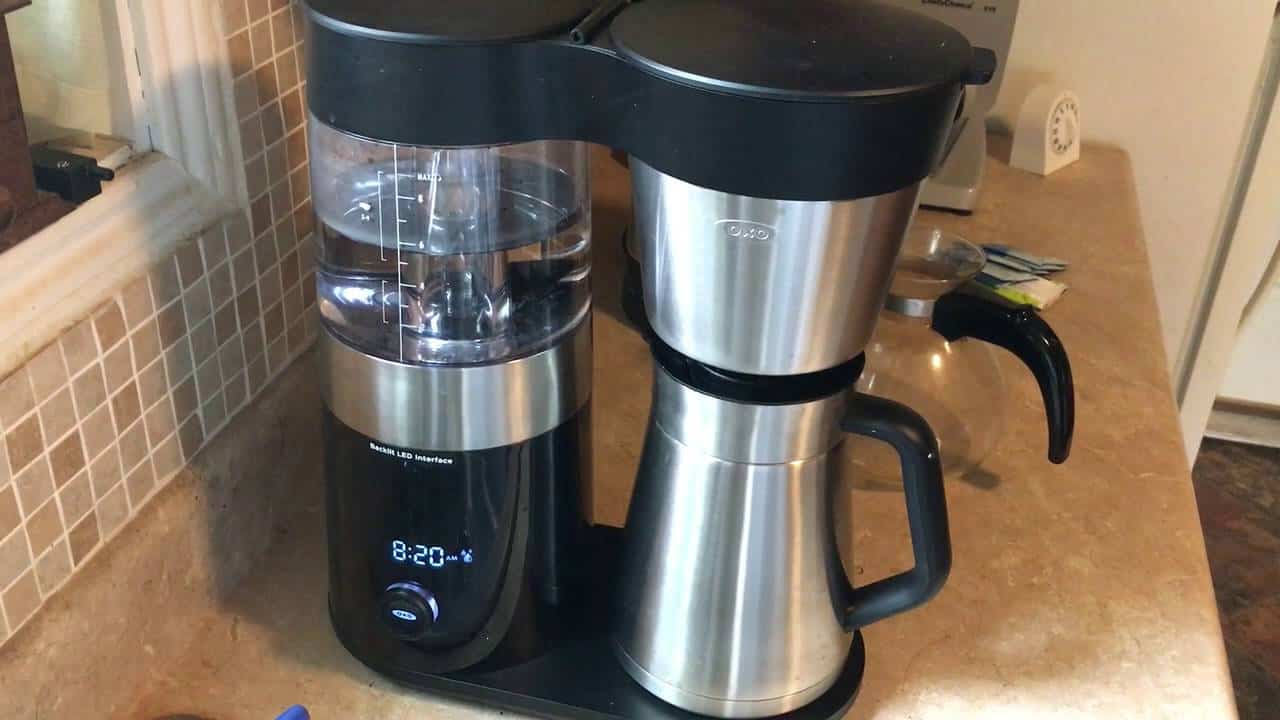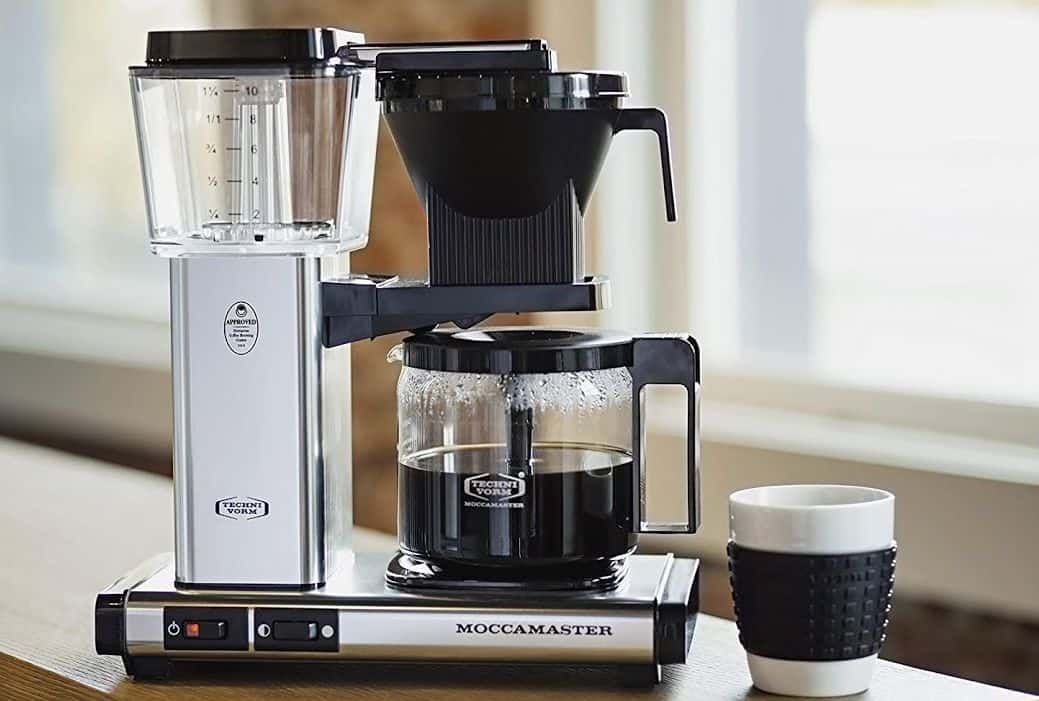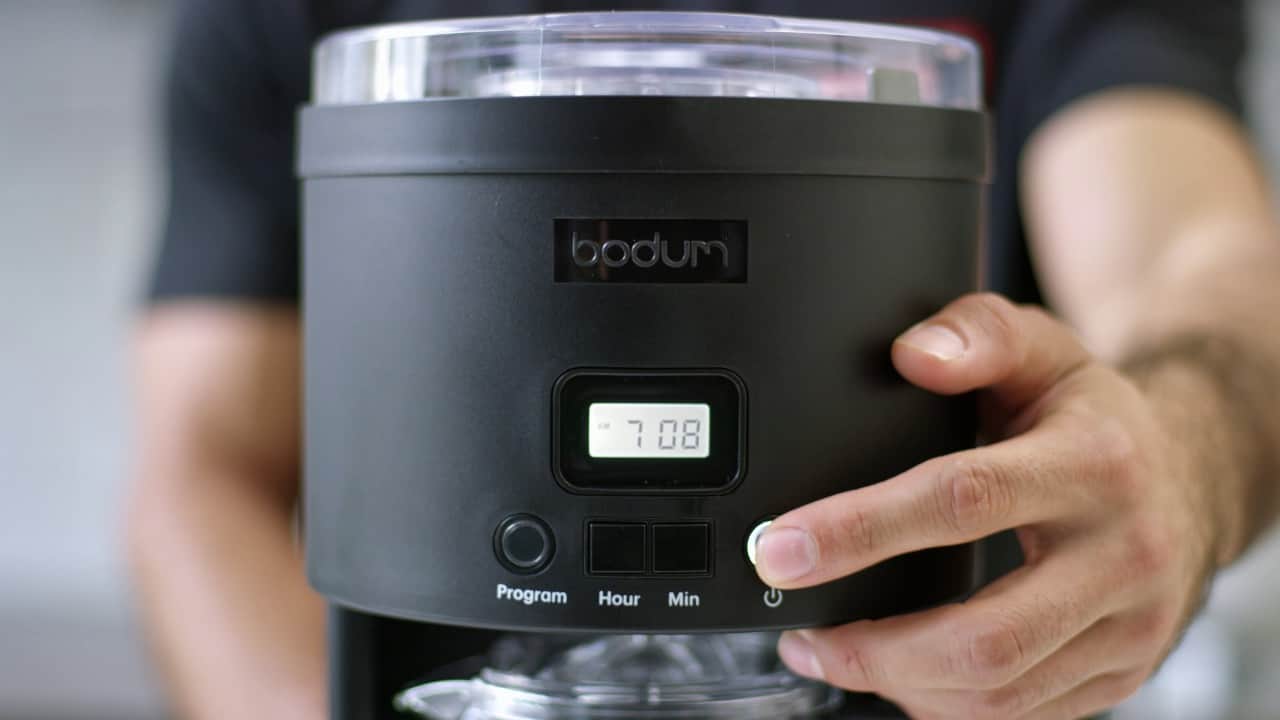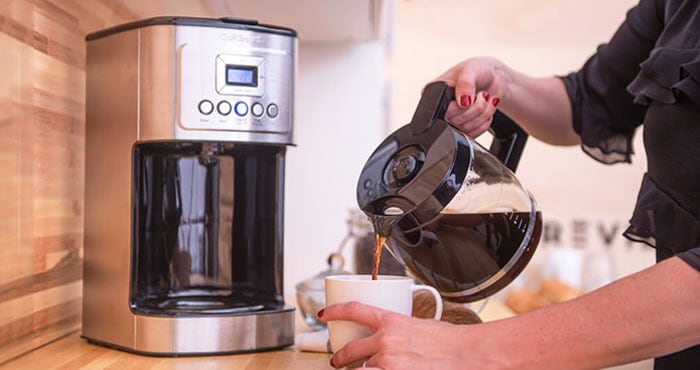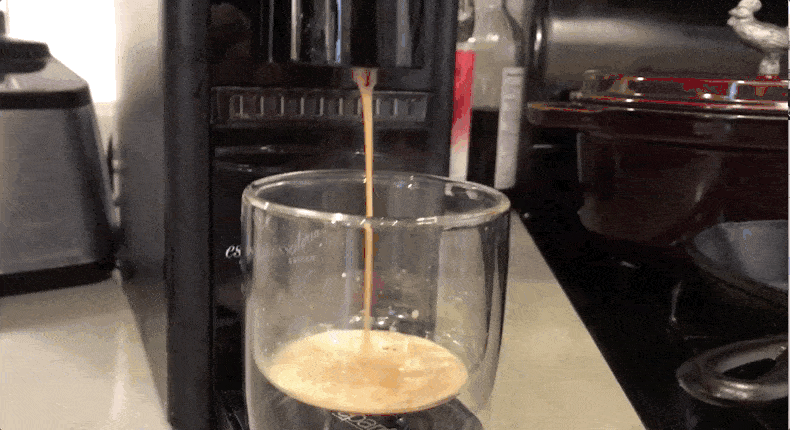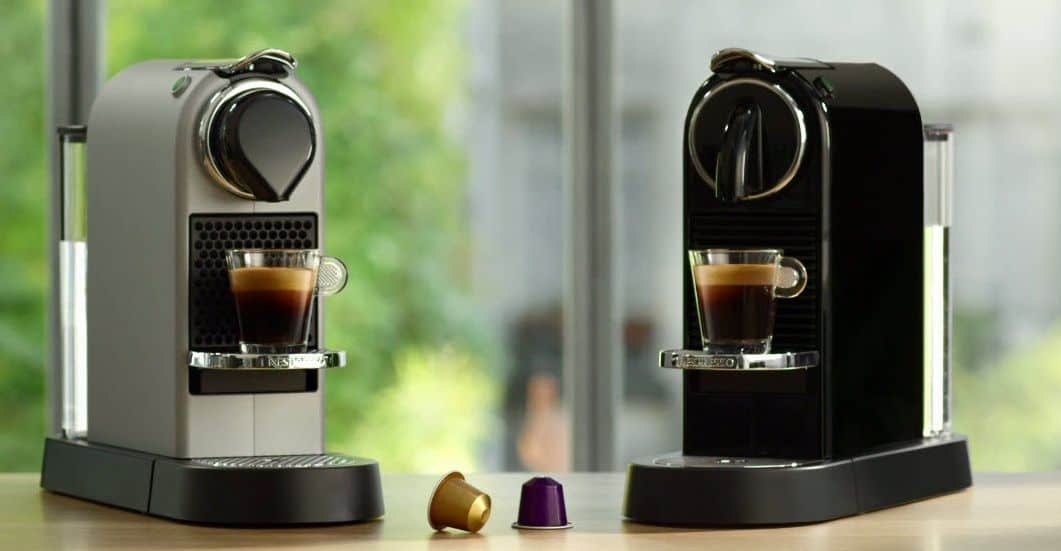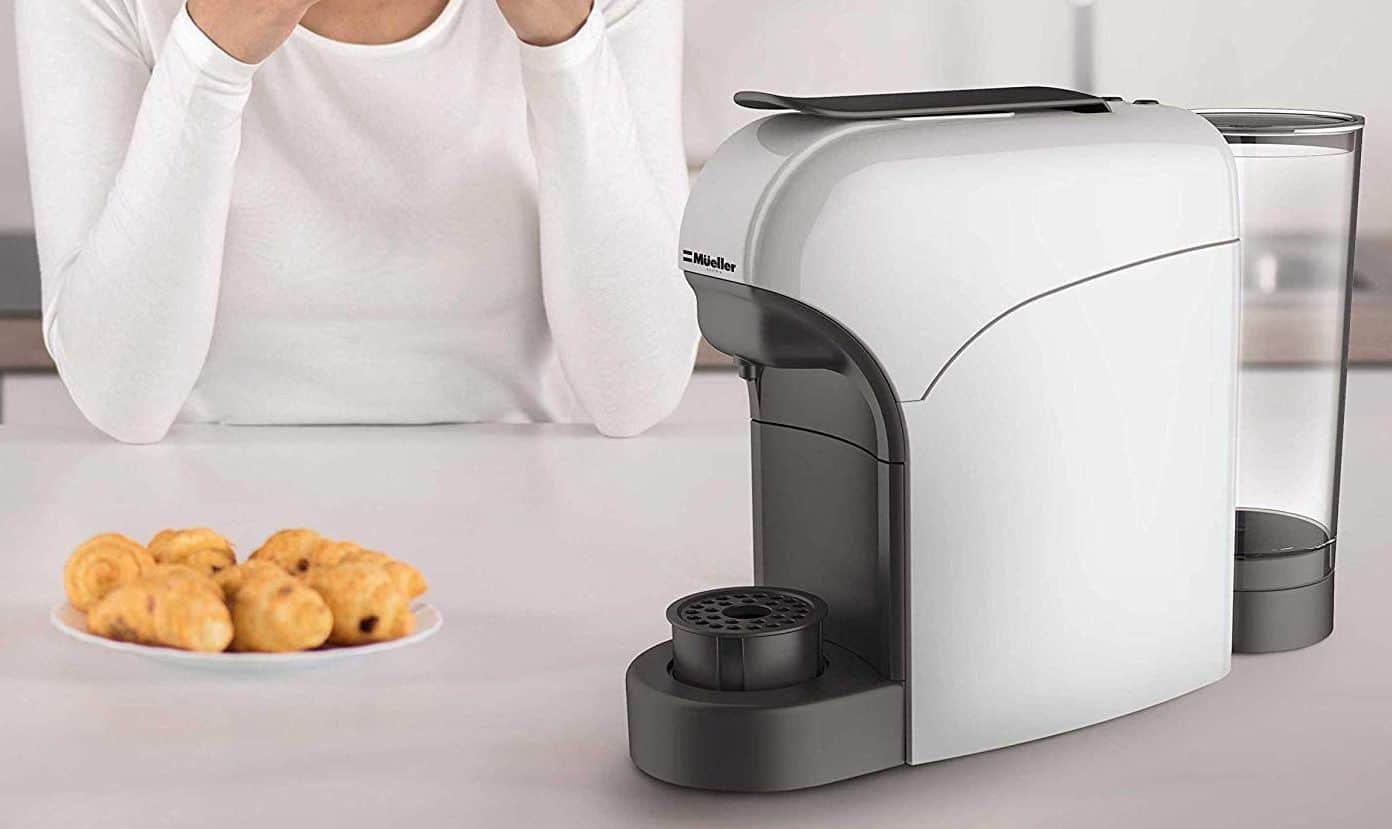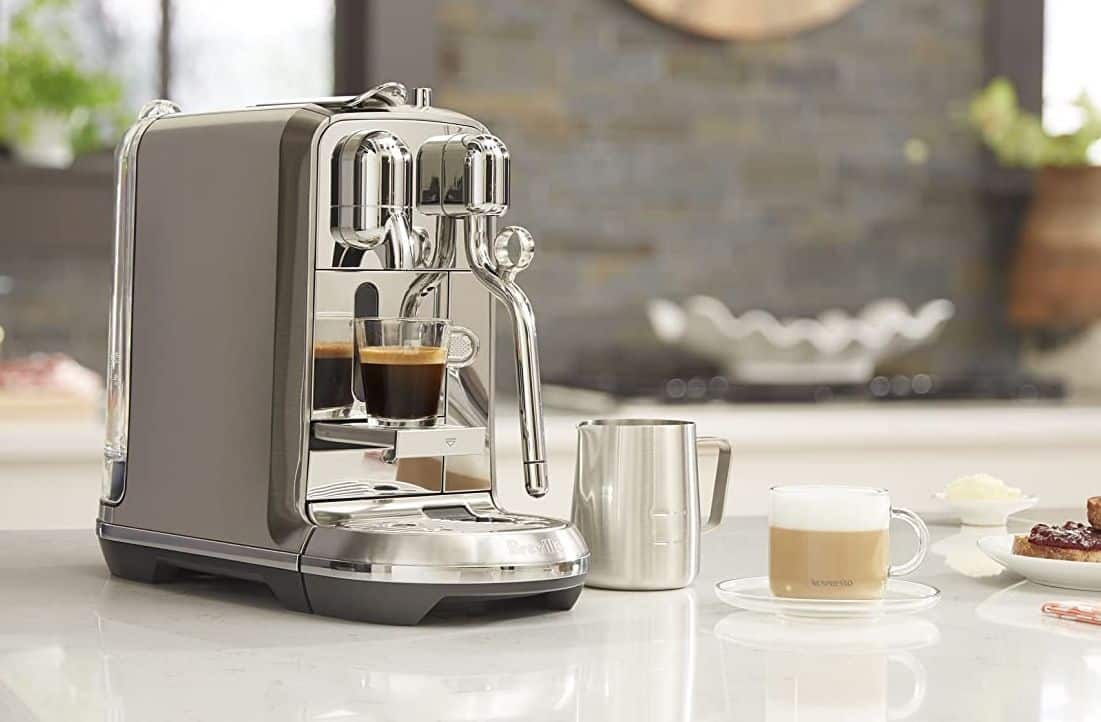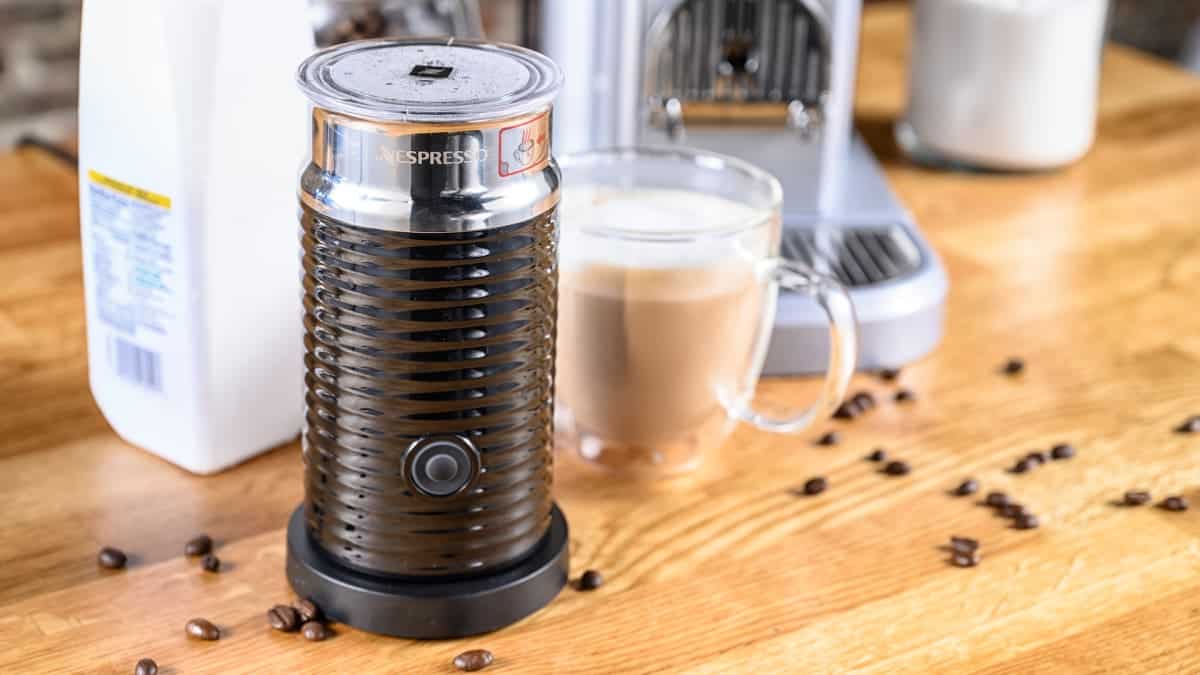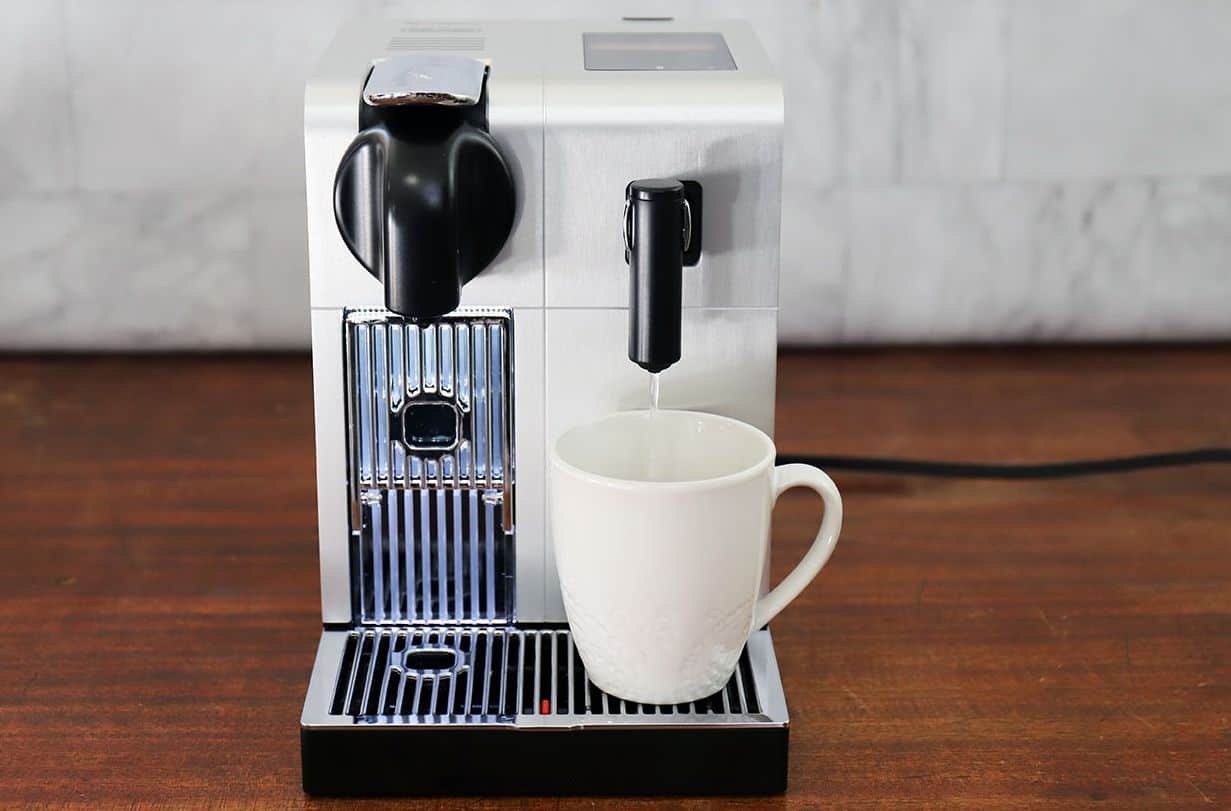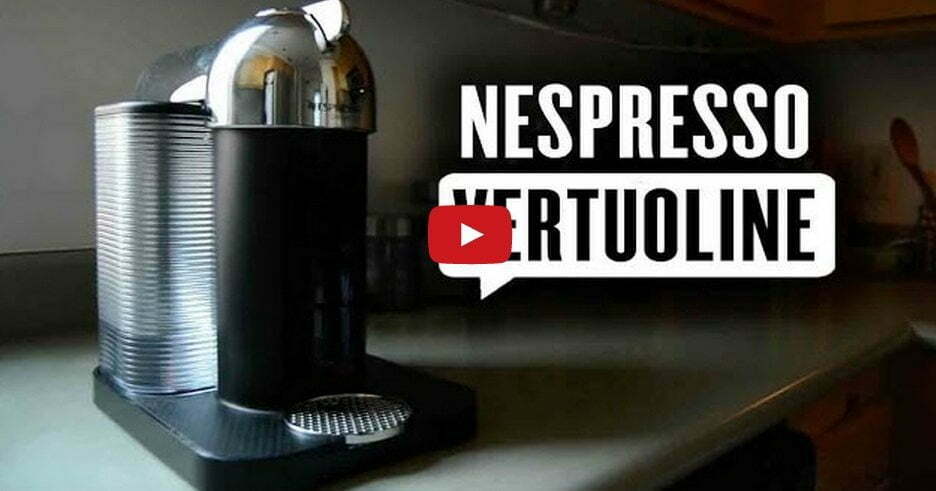When making coffee, water remains one of the most important factors, so you probably want to know whether distilled water vs purified water in a coffee machine is better.
KEY TAKEAWAYS:
- Distilled water contains no minerals, which are necessary for coffee brewing.
- Purified water undergoes many filtration methods, including distillation, so you shouldn’t use it for brewing either.
- Many experts recommend featuring filtered water in your morning cup of coffee because it contains minerals that distilled and purified water lack.
Both distilled and purified water reduce the number of minerals contained in the water, which can cause build-up in your coffee carafe but are needed for optimal flavor extraction. The best coffee maker typically requires descaling every month or two to remove these remnants. So whether you’re using a drip coffee maker vs a pour-over one, you want the best water you can get.
Differences Between Distilled Water and Purified Water for Coffee
Ideally, the water you use for your coffee should taste and smell like nothing. However, any minerals or pollutants in your water can add weird flavors to your cup of coffee. Because of this factor, many baristas use filtered water.
The Specialty Coffee Association of America has released criteria for coffee brewing water, including recommendations for spring water, soft water, bottled water, and tap water. However, they do not recommend using distilled or purified water due to the processes each undergoes. You should also consider the effects of cold water vs hot water for coffee.
Water quality
As the name implies, purified water remains the purest water you can purchase. However, most water needs filtration to avoid contaminants and minerals that affect the taste and smell. Purified water goes through various filtration methods, including distillation, reverse osmosis, ion exchange, and more. As a result, purified water contains minerals in an amount that’s less than 10 parts per million (ppm).
Insider Tip
Some people prefer to use distilled water for their espresso concoctions.
On the other hand, distilled water undergoes only the distillation method, which boils water, captures the steam, and condenses it. The result is water with one ppm, which is technically a form of purified, clean water.
Mineral Content
When brewing coffee, the hot water must contain minerals. Oddly, water that does not contain enough mineral content causes strange extractions and flavors. Additionally, this water can eat away at your coffee machine.
Distilled water contains no minerals due to the production process and can result in any of these issues. The same can be said about purified reverse osmosis water. The recommended mineral content for your water sits at about 150 mg/L because minerals extract flavors from the coffee grounds.
Other Recommendations
The Specialty Coffee Association recommends that your water product have a neutral pH, making it neither acidic water nor basic water. In addition to the 150 mg/L of dissolved minerals, it should have four grains of water hardness, so you don’t want overly soft water either. Finally, it should have 10 mg/L of sodium and 40 mg/L total alkalinity.
Bottled water may be acceptable, and the measurements are sometimes stated on the bottle. However, if you have tap water that isn’t hard and doesn’t contain any odd flavors or odors, you probably can use a filtered version of that. If you live in an area with hard water, consider using a water softener in addition to water filters. Spring water represents another option for your brewing method.
Coffee Preparation and Espresso
The standards mentioned above represent those for standard drip coffee or pour-over coffee. However, espresso holds different standards due to the difference in coffee brewing methods. For espresso, the finely ground coffee beans become tightly packed in a coffee puck, and water does not easily flow through the puck.
Hot water pushes through the puck under extreme pressure of 9-15 bars. This water passes through the puck of beans fast enough that minerals aren’t necessary for extraction. Because of this feature, baristas and coffee lovers consider distilled water an acceptable type of water. Additionally, minerals may build up on the inside of your espresso machine, altering the machine’s pressure.
Warning
You should not use purified or distilled water for your morning cup of coffee, but filtered tap water most likely meets the standards unless your area has hard water.
F.A.Q.S
Why does water hardness matter so much for brewing coffee?
Water that is too hard causes the build-up of minerals within your machine and causes a bitter taste to appear in your cup of coffee.
Is it safe to use tap water for coffee?
You may use tap water for coffee, but you probably would like filtered water better. This preference results from the flavors and odors that some tap water adds to the coffee.
Is distilled water safe to drink?
Yes, distilled water is safe to drink. However, you may not like it because some find it bland. This blandness comes from the removal of minerals.
STAT: Distilled water removes the minerals but not the propensity for water to bond with them. (source)
REFERENCES:
- https://prima-coffee.com/learn/article/coffee-basics/h2o-hello-there-introduction-water-coffee-brewing/32706
- https://www.thecoffeebrewers.com/whisbewaforb.html
- https://waterboyinc.com/distilled-and-purified-water/r
- https://www.seattlecoffeegear.com/blog/2019/06/17/distilled-water-should-you-switch/
- https://mypurewater.com/blog/2021/05/13/distilled-water-for-coffee/

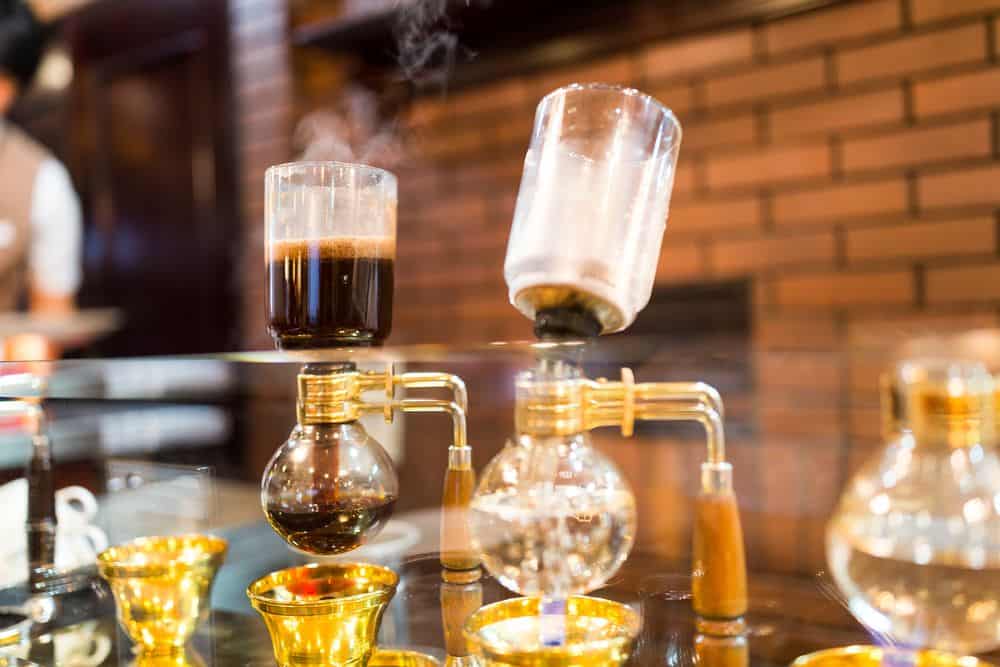













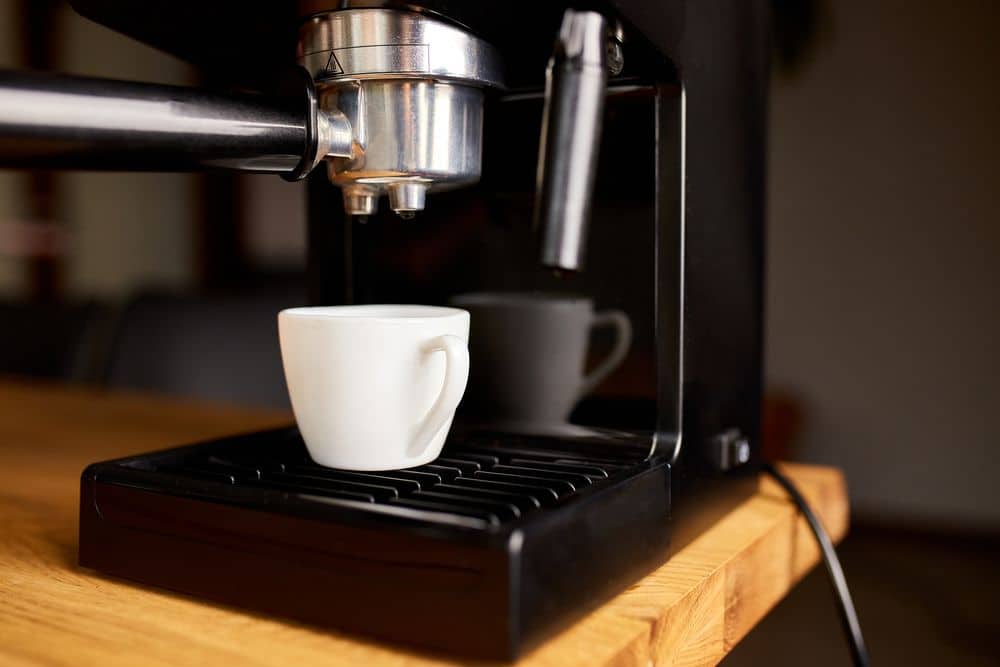
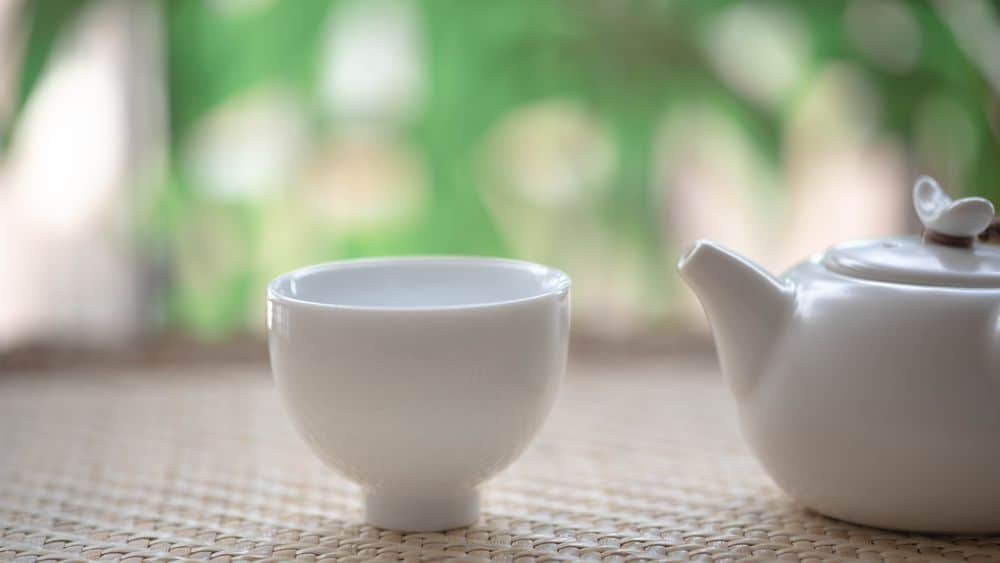
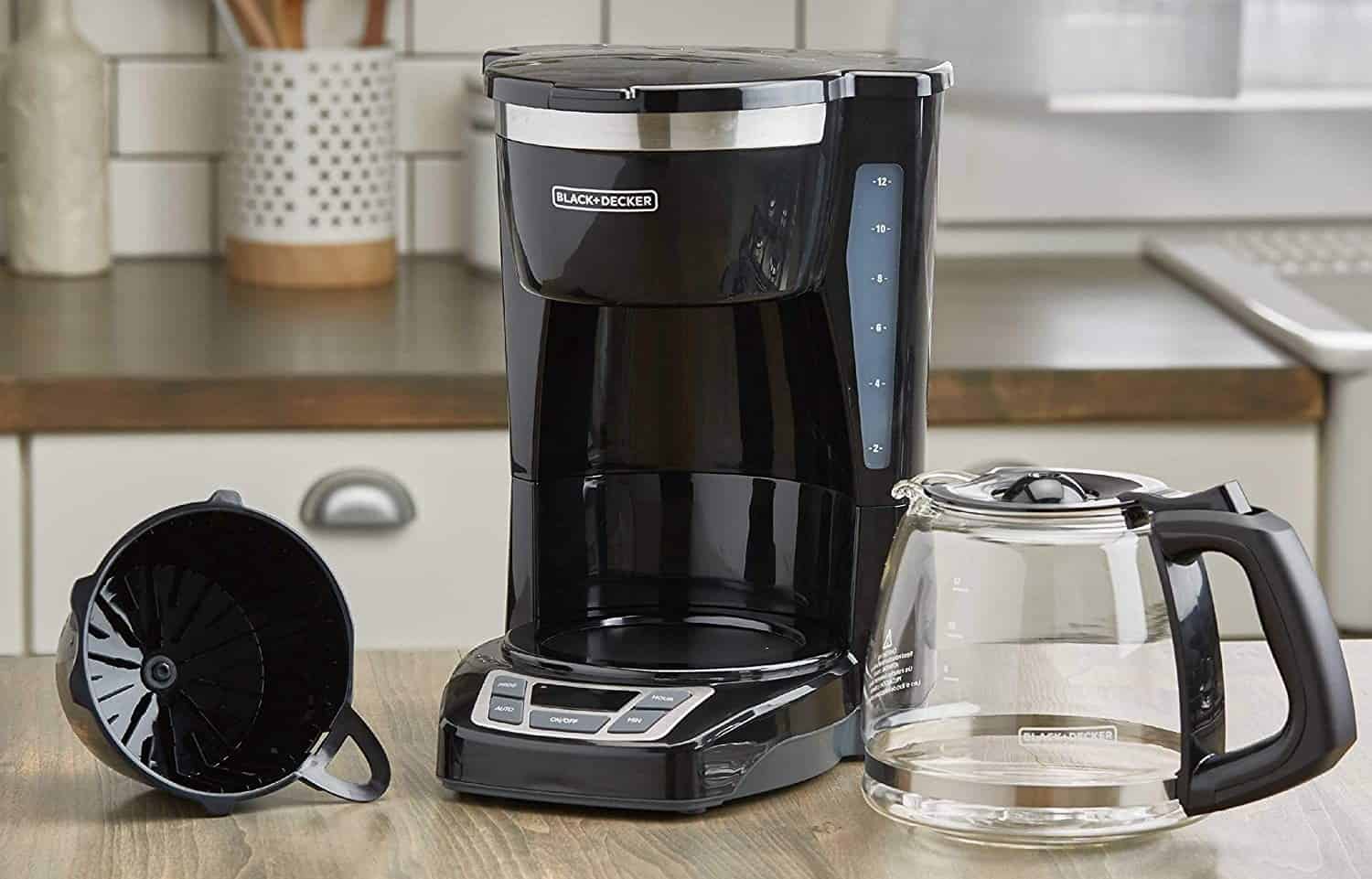
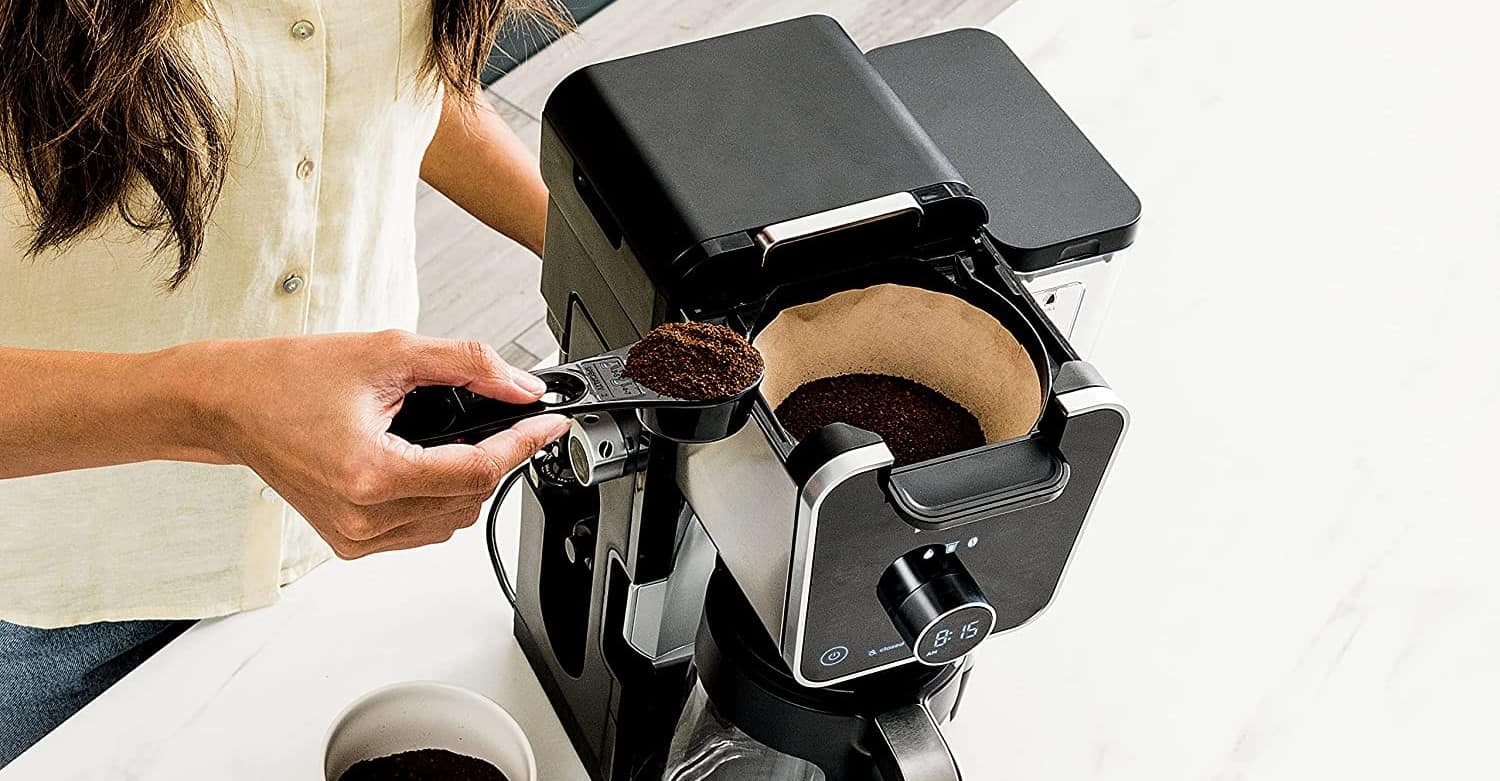
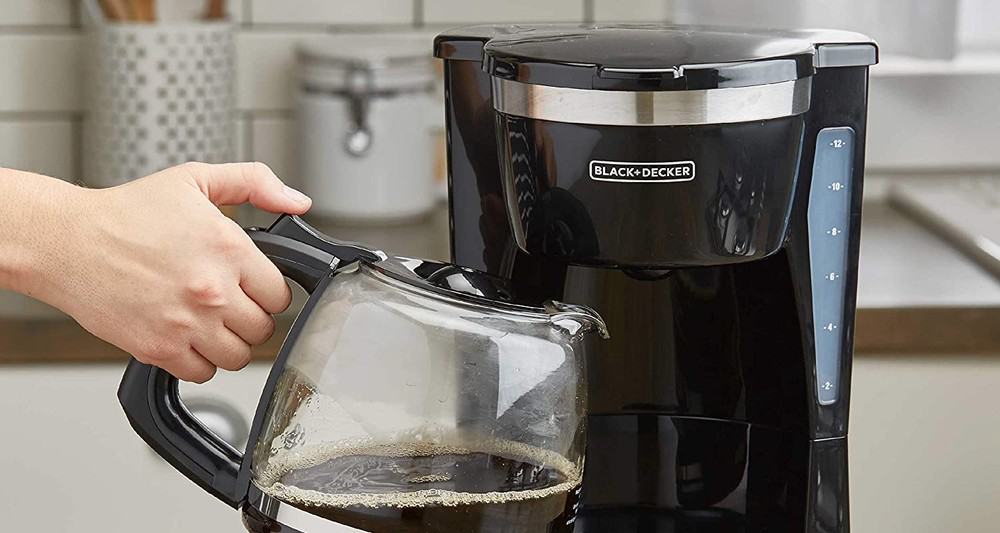
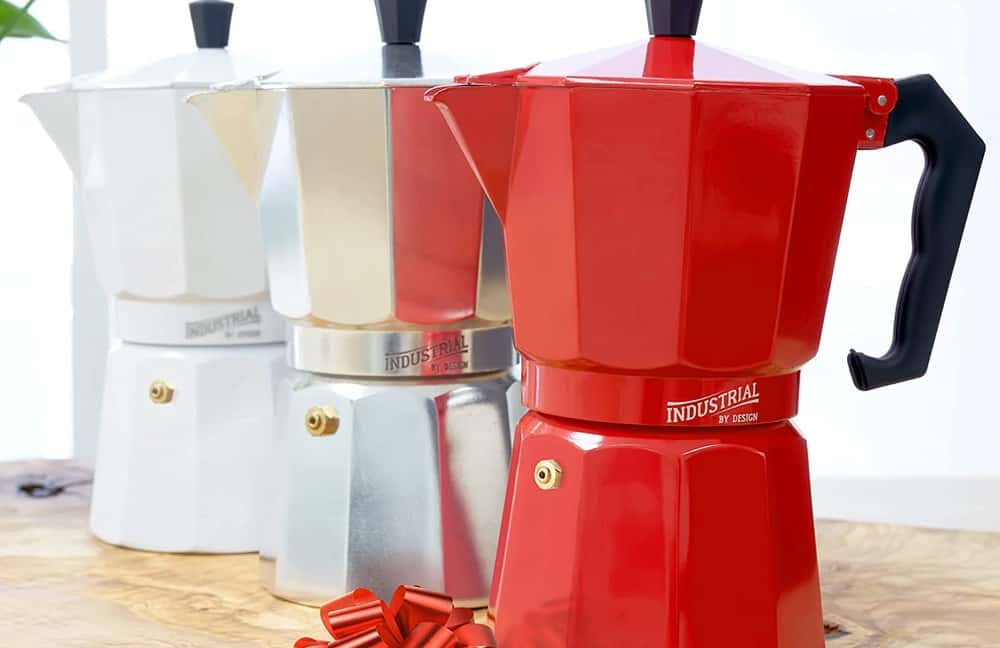
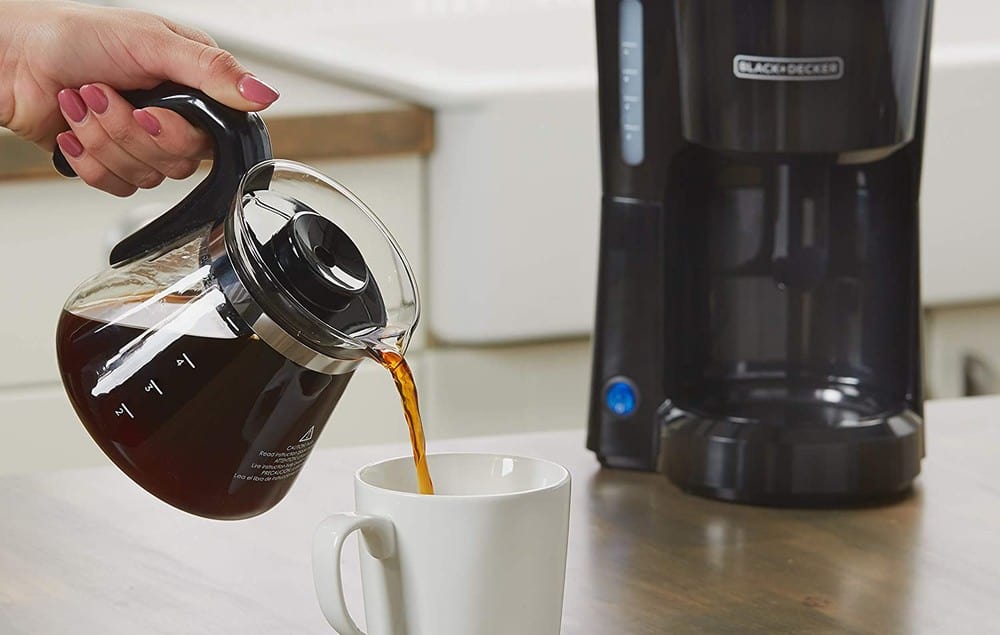
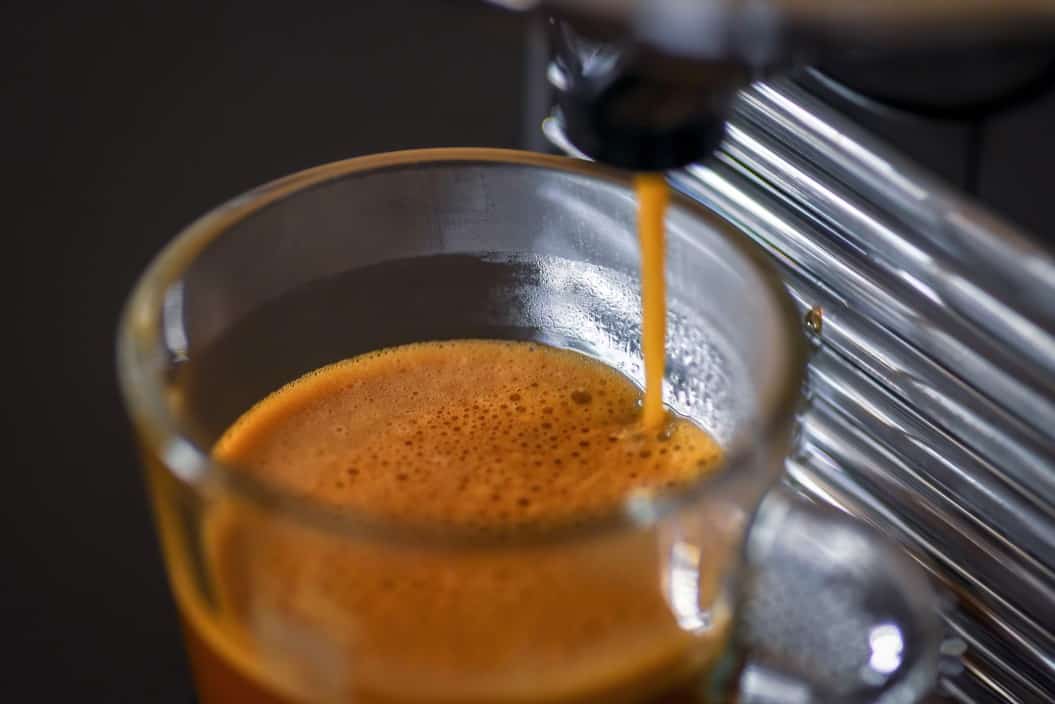
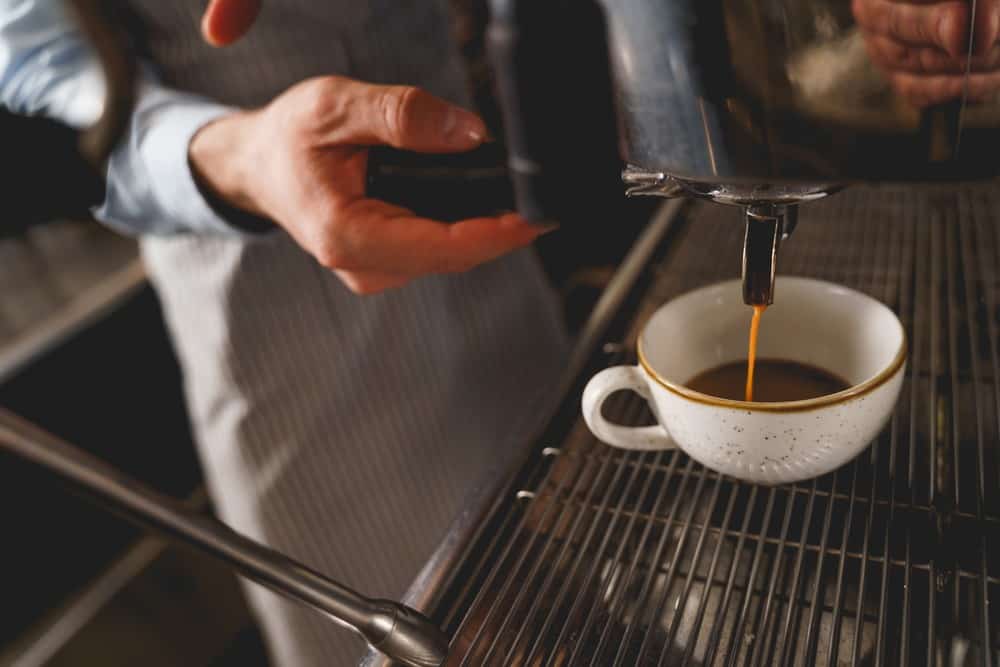

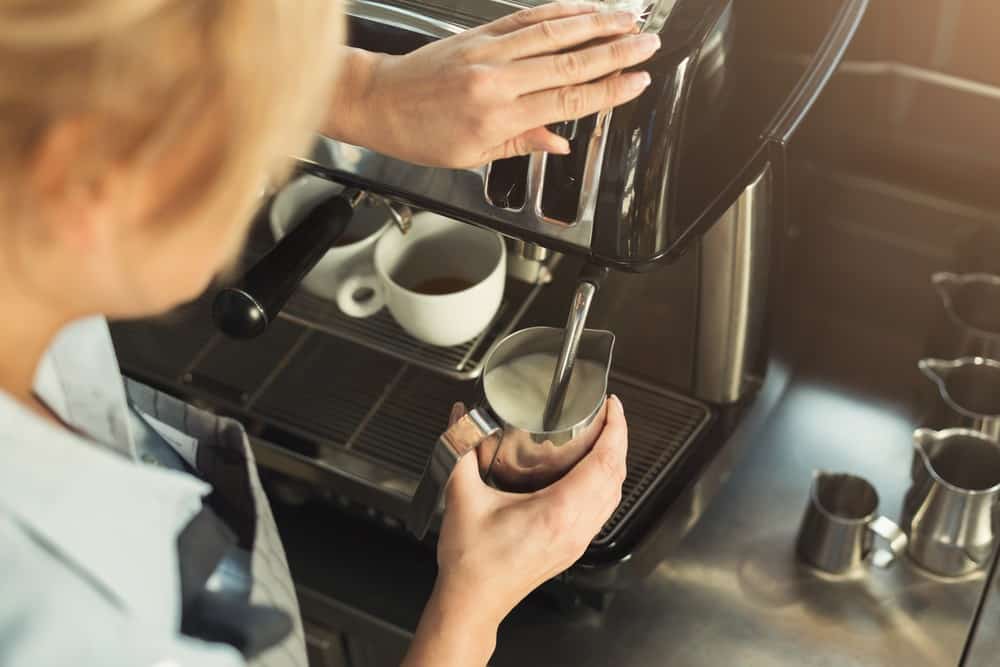
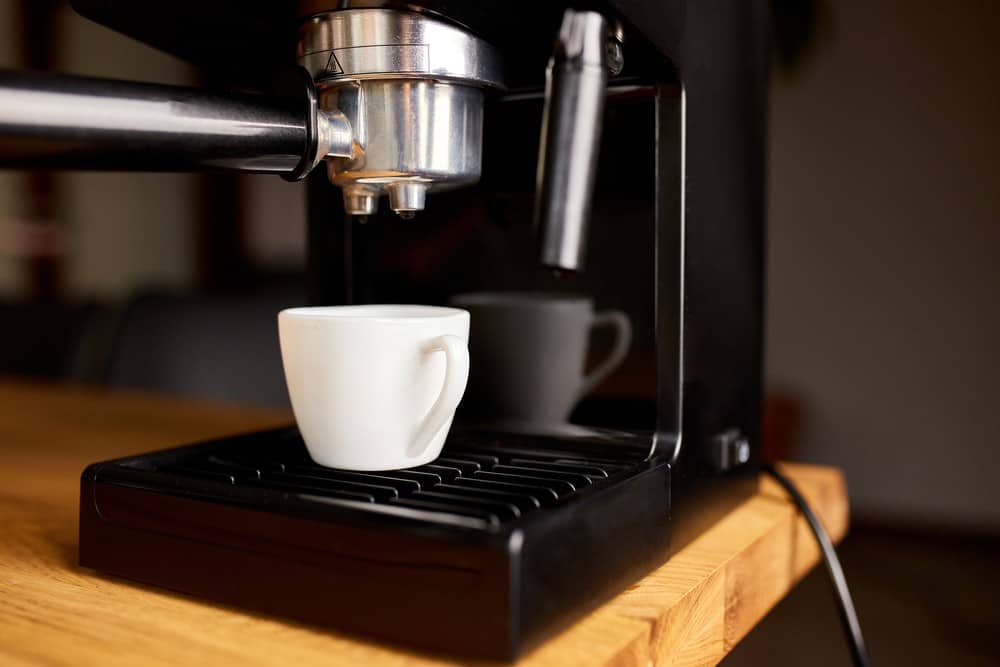
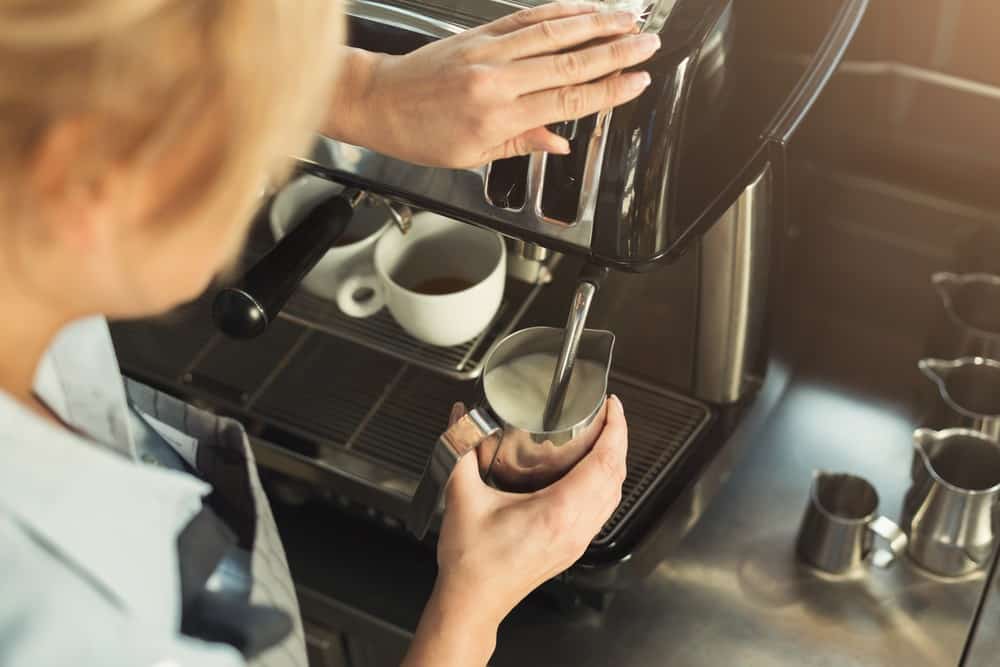
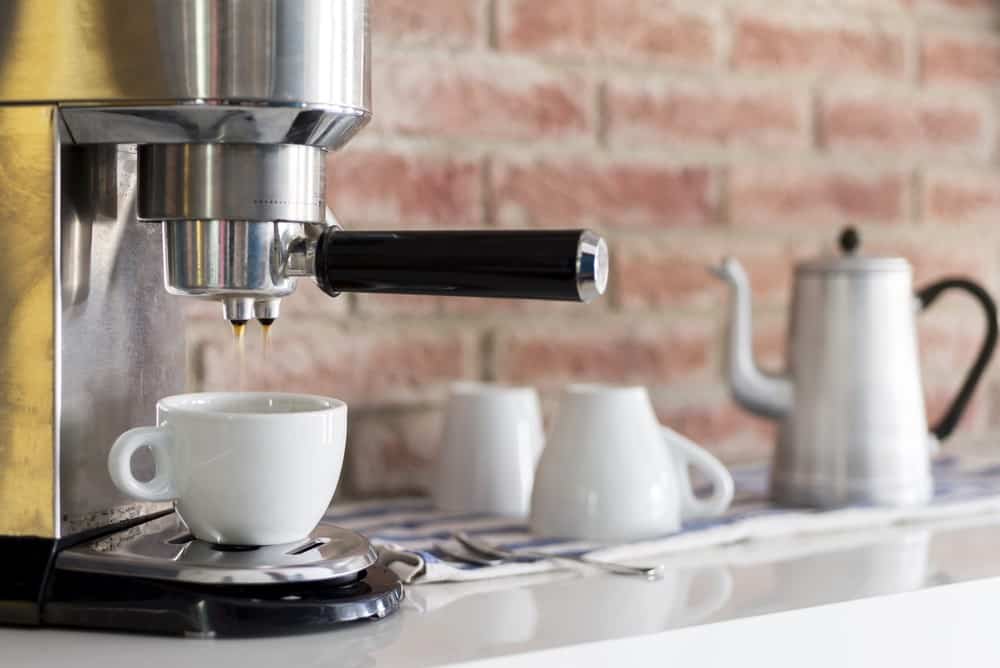
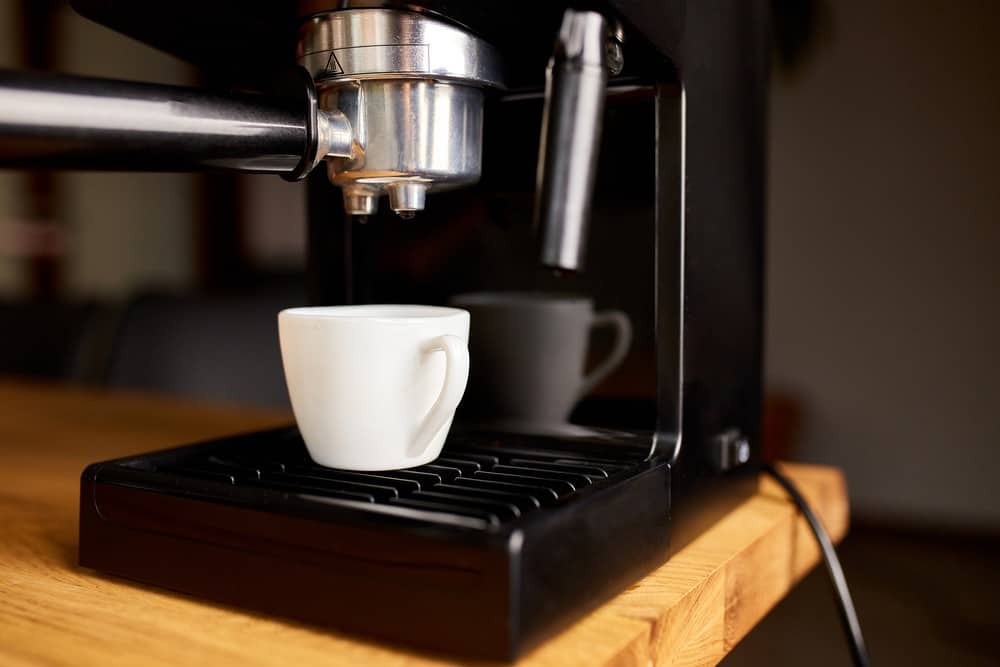
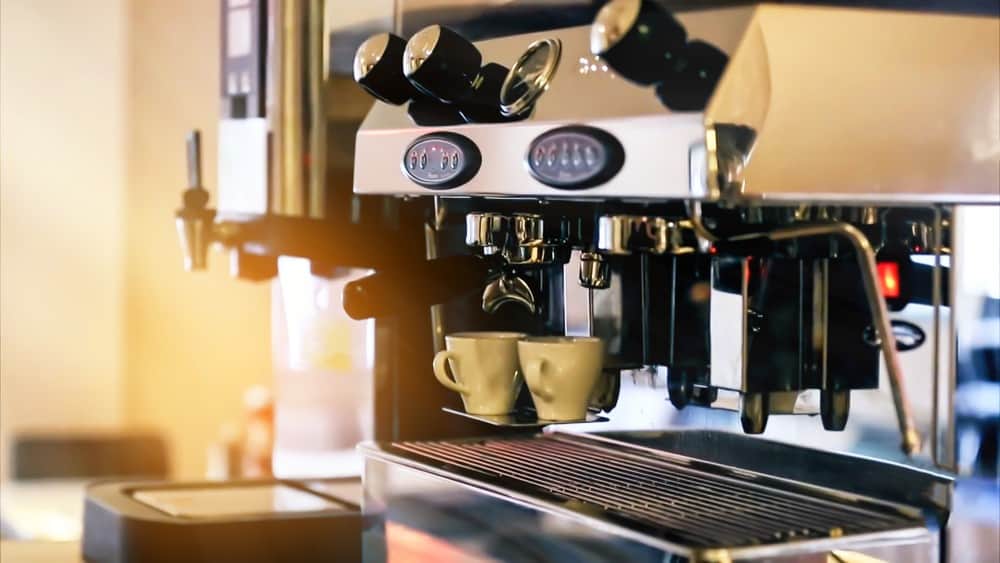
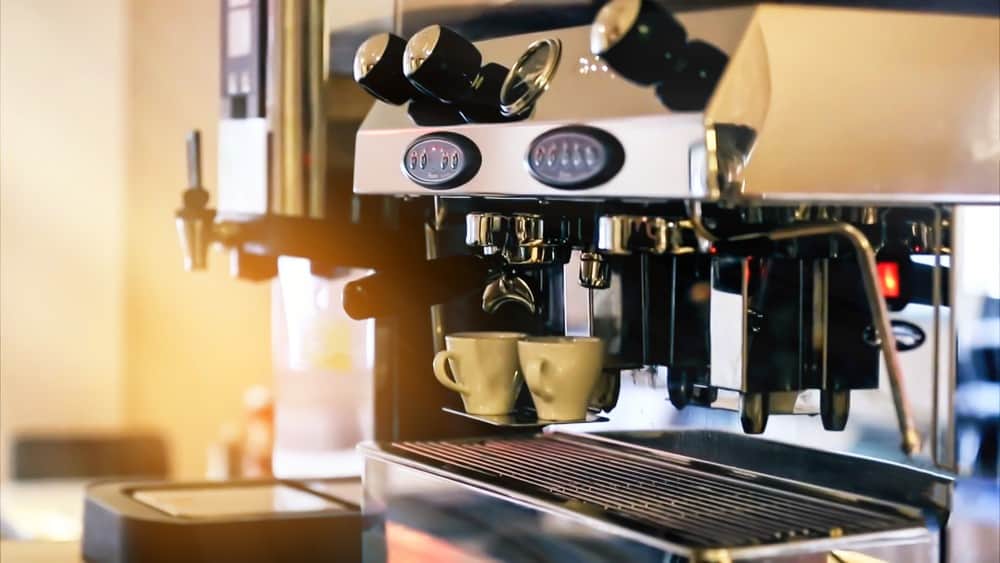
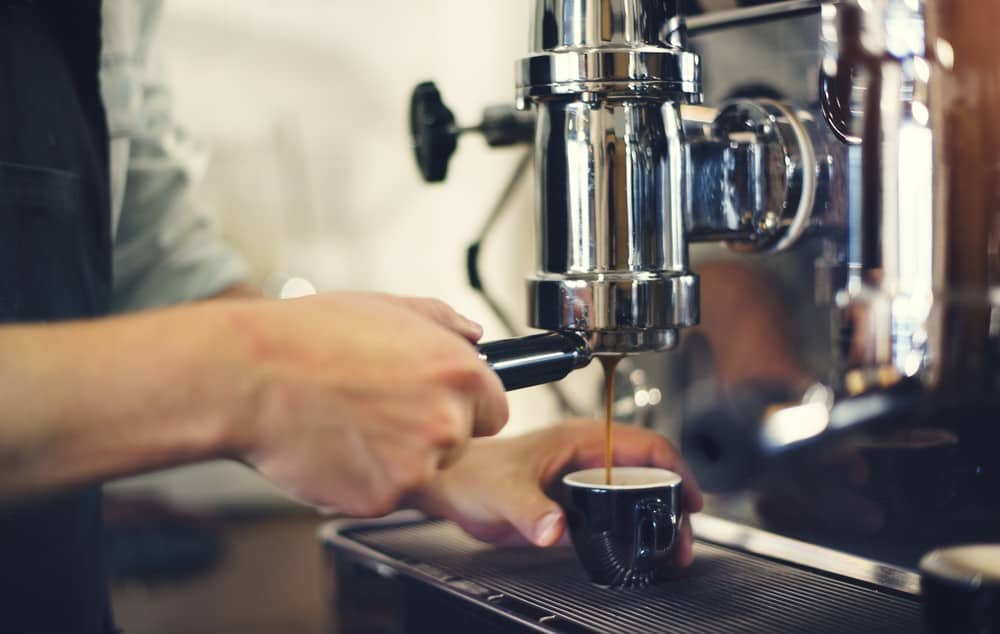
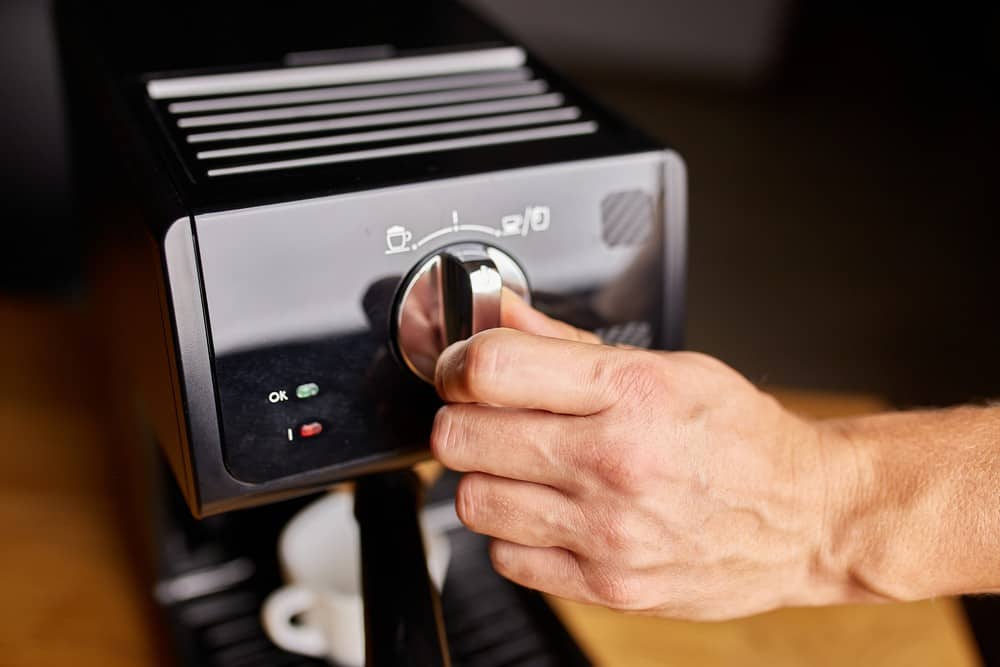
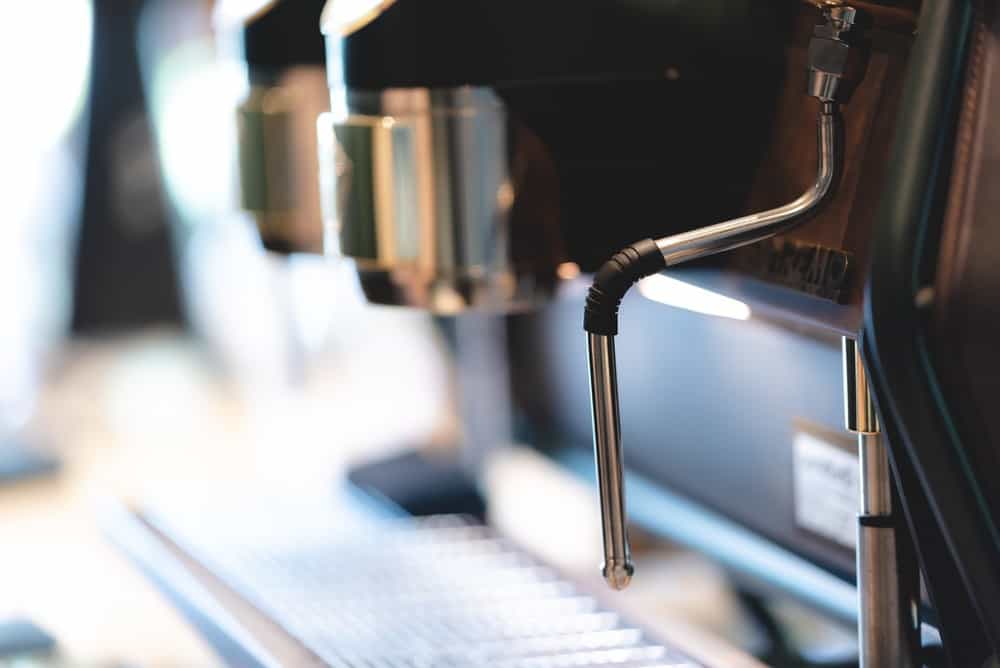
![Best Keurig Alternatives in [year] 27 Best Keurig Alternatives in 2026](https://www.gadgetreview.dev/wp-content/uploads/best-keurig-alternative-image.jpg)
![Best Semi Automatic Espresso Machines in [year] 28 Best Semi Automatic Espresso Machines in 2026](https://www.gadgetreview.dev/wp-content/uploads/best-semi-automatic-espresso-machine-image.jpg)
![Best Coffee and Espresso Makers in [year] 29 Best Coffee and Espresso Makers in 2026](https://www.gadgetreview.dev/wp-content/uploads/best-coffee-and-espresso-maker-image.jpg)
![Best Kitchen Appliances in [year] ([month] Reviews) 30 Best Kitchen Appliances in 2026 (January Reviews)](https://www.gadgetreview.dev/wp-content/uploads/best-kitchen-appliances.jpg)
![Quietest Coffee Makers in [year] 31 Quietest Coffee Makers in 2026](https://www.gadgetreview.dev/wp-content/uploads/quietest-coffee-maker-image.jpg)
![Best Prosumer Espresso Machines in [year] 32 Best Prosumer Espresso Machines in 2026](https://www.gadgetreview.dev/wp-content/uploads/71ytF6efAlL._AC_SL1500_.jpg)
![Best Single Serve Coffee Maker No Pods in [year] 33 Best Single Serve Coffee Maker No Pods in 2026](https://www.gadgetreview.dev/wp-content/uploads/best-k-pod-coffee-image-1.jpg)
![Best Coffee Makers for Hard Water in [year] 34 Best Coffee Makers for Hard Water in 2026](https://www.gadgetreview.dev/wp-content/uploads/best-coffee-maker-for-hard-water-image.jpg)
![Best Dual Boiler Espresso Machines in [year] 35 Best Dual Boiler Espresso Machines in 2026](https://www.gadgetreview.dev/wp-content/uploads/best-dual-boiler-espresso-machine-image.jpg)
![Best Coffee Makers for RV in [year] 36 Best Coffee Makers for RV in 2026](https://www.gadgetreview.dev/wp-content/uploads/best-coffee-maker-for-rv-image.jpg)
![Best Ninja Coffee Makers in [year] 37 Best Ninja Coffee Makers in 2026](https://www.gadgetreview.dev/wp-content/uploads/best-ninja-coffee-maker-image.jpg)
![Best Breville Espresso Machines in [year] 38 Best Breville Espresso Machines in 2026](https://www.gadgetreview.dev/wp-content/uploads/best-breville-espresso-machine-image.jpg)
![Best 5 Cup Coffee Makers in [year] 39 Best 5 Cup Coffee Makers in 2026](https://www.gadgetreview.dev/wp-content/uploads/best-5-cup-coffee-maker-image.jpg)
![Best Commercial Coffee Makers in [year] 40 Best Commercial Coffee Makers in 2026](https://www.gadgetreview.dev/wp-content/uploads/best-commercial-coffee-maker-image.jpg)
![Best Commercial Espresso Machine for a Small Coffee Shop in [year] 41 Best Commercial Espresso Machine for a Small Coffee Shop in 2026](https://www.gadgetreview.dev/wp-content/uploads/best-commercial-espresso-machine-small-coffee-shop-image.jpg)
![Best Coffee for Moka Pot in [year] 42 Best Coffee for Moka Pot in 2026](https://www.gadgetreview.dev/wp-content/uploads/best-coffee-for-moka-pot-image.jpg)
![Best USA Made Coffee Makers in [year] 43 Best USA Made Coffee Makers in 2026](https://www.gadgetreview.dev/wp-content/uploads/best-usa-made-coffee-makers-image.jpg)
![Fastest Coffee Makers in [year] 44 Fastest Coffee Makers in 2026](https://www.gadgetreview.dev/wp-content/uploads/fastest-coffee-maker-image.jpg)
![Best SCAA Certified Coffee Makers in [year] 45 Best SCAA Certified Coffee Makers in 2026](https://www.gadgetreview.dev/wp-content/uploads/best-scaa-certified-coffee-maker-image.jpg)
![Best Smart Coffee Makers in [year] 46 Best Smart Coffee Makers in 2026](https://www.gadgetreview.dev/wp-content/uploads/best-smart-coffee-maker-image.jpg)
